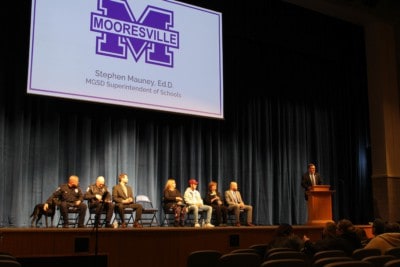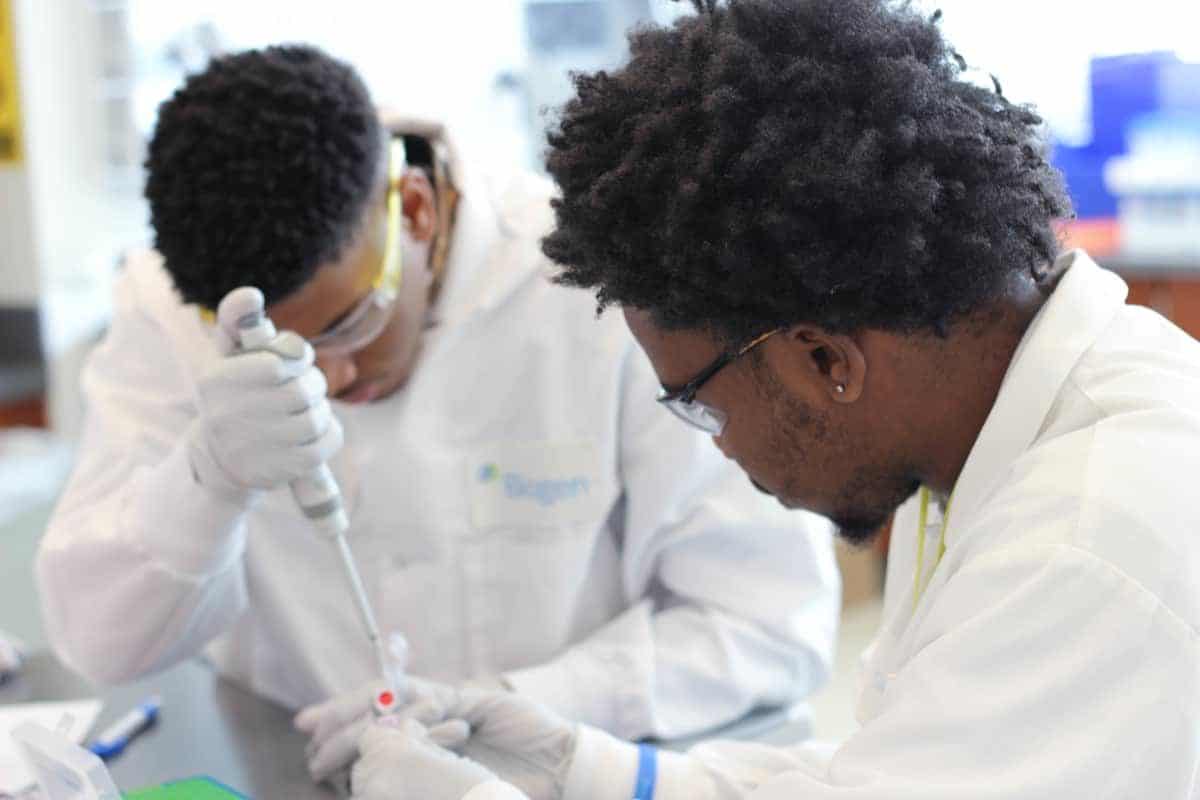
Warren New Tech High School students, wearing goggles and white lab coats, pored over an experiment with high-tech tools like micropipettes, gel electrophoresis machines, and microcentrifuges. Their task: to examine human DNA and determine if a specific subject was a carrier of hemophilia, a disorder where blood doesn’t clot normally.
“Being able to do an [experiment] like this, understanding a real-world thing like hemophilia and exploring how it impacts people every single day and how we come up with solutions to solve that problem is huge,” said Robert Carrier, a Teach for America (TFA) corps member teaching science and math at Warren New Tech.
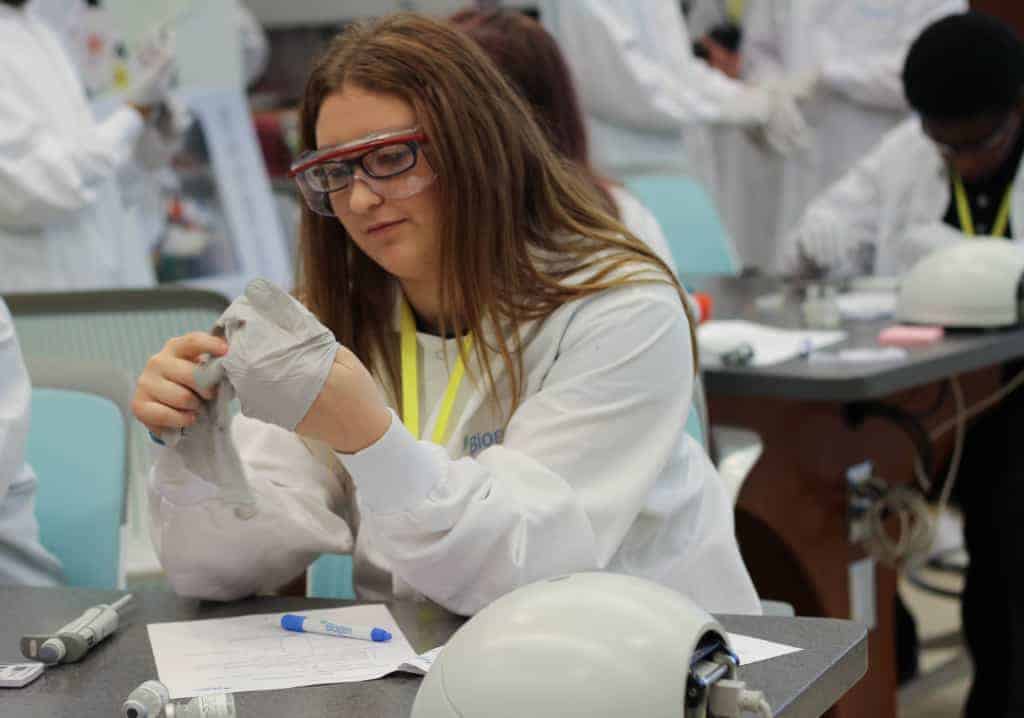
The students conducted the experiment last month at Biogen’s Community Lab in Research Triangle Park, which has a partnership with TFA. The lab opened in 2014 and provides free programs “to increase access for those not exposed to science in their everyday life” writes lab manager, Amanda Marvelle.
“Doing a lab like this is really beneficial because it allows them to see what they’re learning in class,” Carrier said, noting the advanced equipment at the Community Lab is something he wouldn’t have access to in his classroom.
“In my class, we have a very limited amount of funding. Every year, I maybe have $700 to spend total for both semesters combined … for both my chemistry and physics classes,” he explained. “So I have to be very limited on what labs I choose to do.”
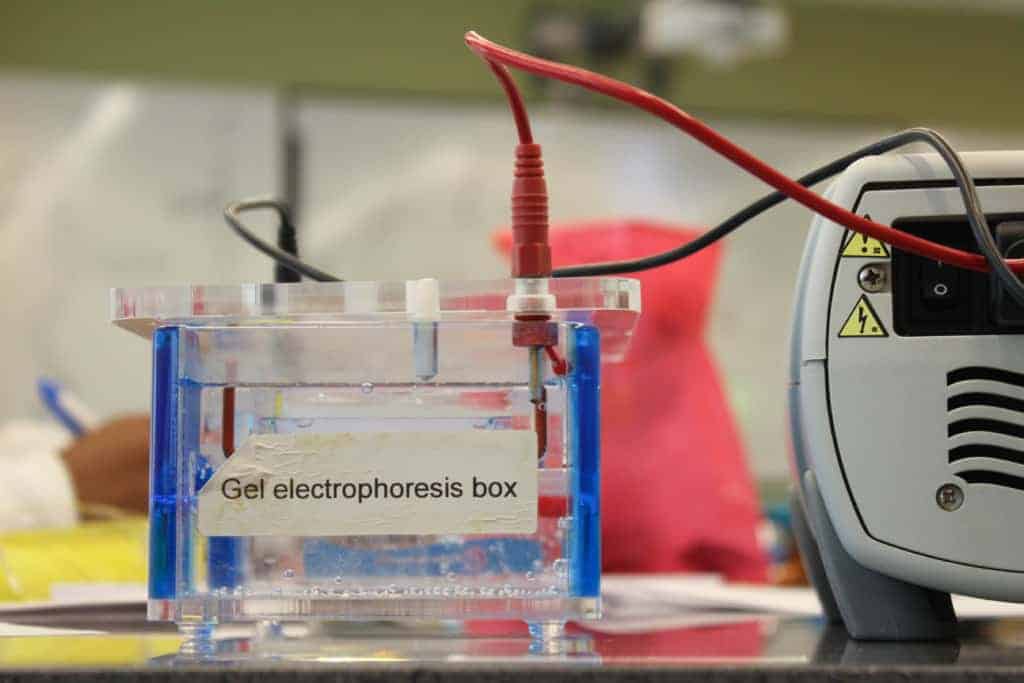
Students participating in the lab included freshmen through seniors, and sophomore Evynn Richardson said the field trip differed from her previous experiences in science education.
“It’s more interactive,” she said.
She pointed out another reason why she felt it was important for her to have the opportunity to experience the lab: “There aren’t a lot of women in STEM careers,” she said, adding that she has been bouncing back and forth between career paths in biology or becoming a science teacher.
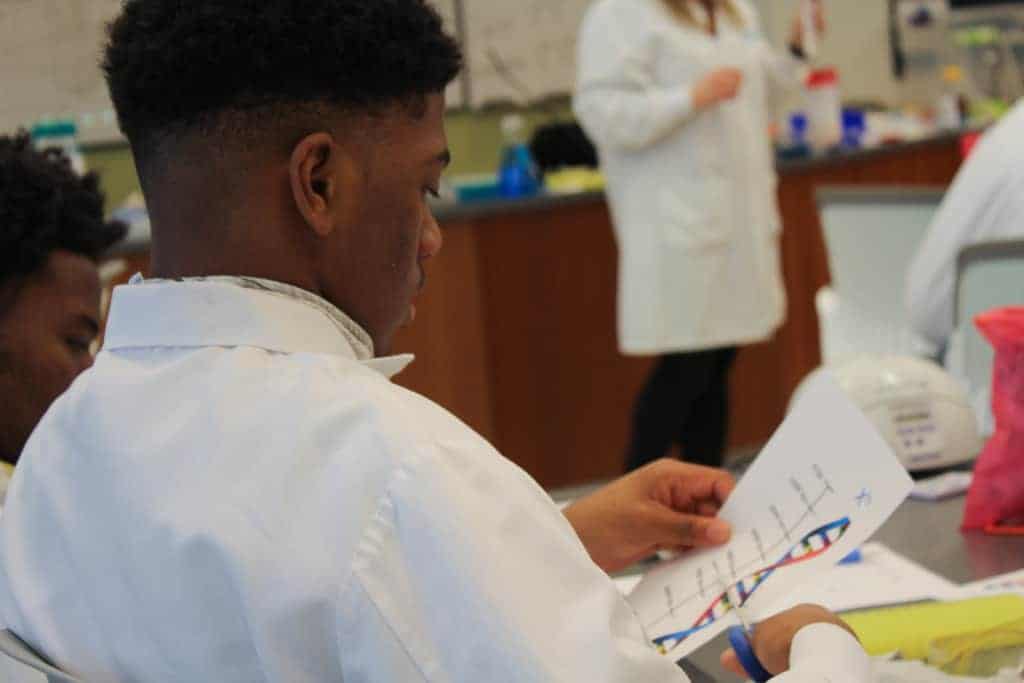
Richardson’s classmate, sophomore Shannon Maiden-Brittle shared an interest in teaching science.
“I honestly think education is one of the most important things in the world,” she said. “Science is also really important because it’s the basis of everything.”
However, after moving from Virginia to North Carolina, Maiden-Brittle said she noticed a difference in access to science education, including opportunities outside of the classroom.
“I don’t think this state has the funding for it,” she said. Still, she said the teachers at Warren New Tech had gone above and beyond to push her in subjects like biology and chemistry. Carrier had offered her one of his college textbooks.
“It’s been a real challenge for sure, trying to inspire, I guess, the next generation,” Carrier said. “These students come from a very rural environment, and being in a rural environment, they have a hard time experiencing a lot of opportunities. … And being able to come to Biogen and do these experiments, it can open doors for them.”
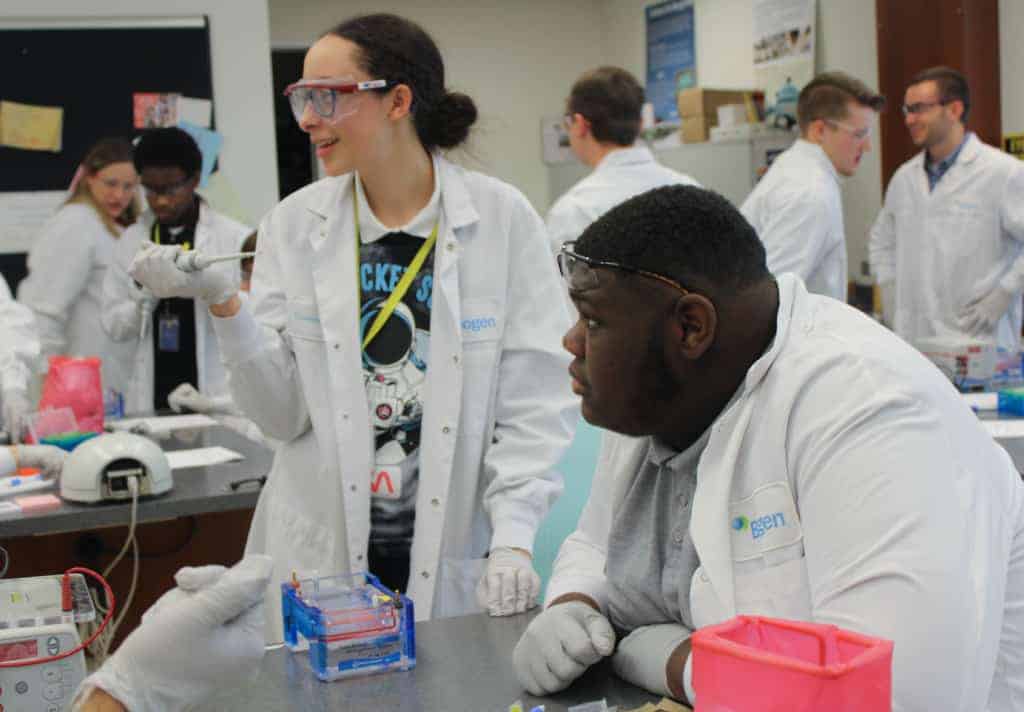
As a science teacher, Carrier said that STEM education is key so that students understand “how things work” in today’s world where technology is growing at an exponential rate.
“What’s really nice about science is that they become scientists and they are faced with problems and they have to learn how to answer those problems,” Carrier said. “It’s not just learning science; it’s being problem-solvers and critical thinkers.”
In his perspective for our series on the Biogen Community Lab, Carrier recognized the effect of the disparities in opportunity for his students to become scientists, writing, “Every student has the same potential to do incredible things, but not the same opportunity. And when those opportunities are not equal, it creates a gap that only continues to grow. The zip code that a child is born into should not be the determining factor of their future …”
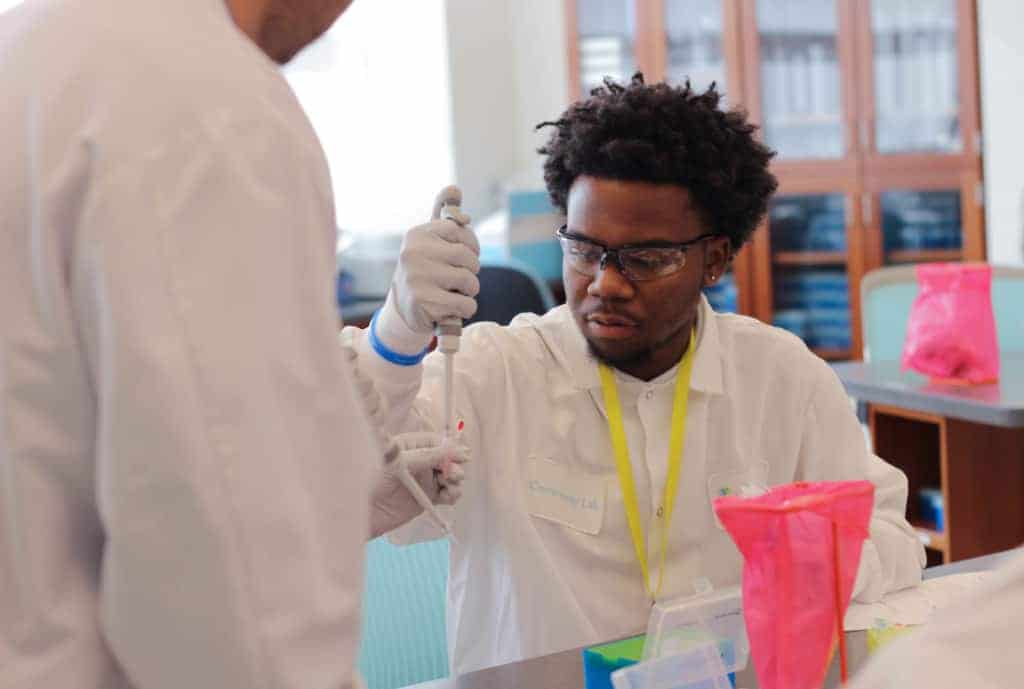
The disparity is not one lost on the students. When I asked Maiden-Brittle what she would tell legislators about her science education if she had the opportunity, she didn’t mince words.
“I would want them to know that even though a lot of people don’t seem to be doing well — even though our test scores aren’t that good — there are a lot of students who really are interested in being something in science, being something in math, being something in anything. … A lot of people here are interested in that,” she said. “There are people here who want to be doctors, but because of the education, they’re settling for wanting to be construction workers. And it’s sad because they have the desire, they have the drive, they just don’t have the education they need. They don’t have that push from the schools.”
This article is part of our Biogen series. See this story from the perspective of the Biogen Community Lab manager, a teacher at Warren New Tech High School, and a student at https://www.ednc.org/category/biogen/.


